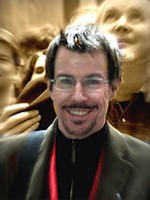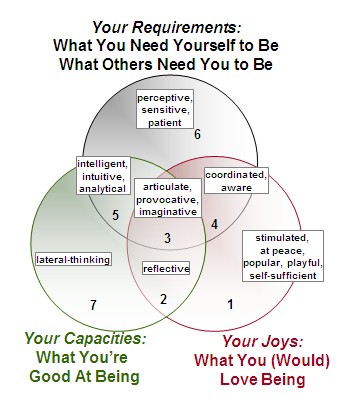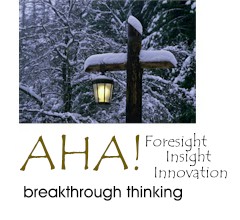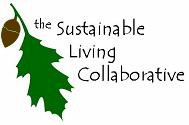 photo from Fallingbrook Community Association As I was thinking about Beth’s Where is Home for You? contest, about the responses to the contest on Patti’s 37Days FaceBook page, and about my own article on the subject, a chickadee landed on the bird feeder just outside my window. It occurred to me that this little creature might have some thoughts on the subject. I started by asking her name, and the answer she chirped back didn’t translate into any phoneme I know of, so for this interview I’m calling her Unique Chickadee, since I think that’s what her name means: Dave: OK Ms Chickadee, could you please start by telling me what you do for a living, and what you do just for fun? Unique Chickadee: What I “do for a’livin”? Very musical expression, but I have no idea what you mean. Dave: What you do to feed and shelter yourself and your family, then. And then what you do with the time left over. Unique Chickadee: Hmmm. I do what you see me do. I do whatever I like. As you told your friend the other week, the best way to describe it is to say “I do…this.” I eat stuff that’s tasty. I sleep in the shelter of the trees because it’s cozy and comfortable and just because I like to do it. I splash in the water to get clean, especially with others, and just because I like to do it. I fly, to look around, to meet others, to discover new places, and just because I like to do it. I sing, to communicate, to identify myself, to keep myself company, and just because I like to do it. I play, with others and by myself, because that’s how I learn, and just because I like to do it. I don’t see the distinction between your a’livin activities and fun activities. I do all these things because I want to. They’re all easy, and they’re all fun. As for family, I’m not in a breeding pair, so except for the Time of Newborns, when I help out the parents of the babies, protecting their nest from attack, finding sources of food and so on, I need only look out for myself. Dave: I thought birds were flock creatures? Unique Chickadee: I have been a part of several flocks in my life. Like most of us, I’m a bit of a rover, and if I find a flock that needs me more than the one I’m with, I’ll ask to join them. My Purpose is To Be Of Use, but that’s never a burden. We help each other out, but our a’livin is pretty easy and carefree. By the way, we’d love a birdbath out by the feeder. Yes, we know all about your cat — he’s fast and clever, but so are we. Dave: Not my cat. Not sure he belongs to anyone, really. Unique Chickadee: Really? Far too pampered to survive without a human keeper. He must belong with one of the other humans in your community. Dave: Who are you, or what are you, other than what you do, if that isn’t too philosophical a question? Unique Chickadee: I am who you see. I am me, Unique Chickadee. If you are asking what I believe, what I think about and care about, what I aspire to, what I enjoy, what I am capable of that I don’t do, what qualities I have that make me good at what I do, that is another question. Is that what you mean? Dave: OK, yes, I guess so. Unique Chickadee: I believe all-life-on-Earth is wonderful. I think about visiting new places, and I imagine doing new things. I care about my well-being and that of my flock. I aspire to love everyone and everything I encounter. I enjoy intuiting and learning, the fruits of my discovery. I am capable of imagining things I have never seen or heard or felt. I have the useful capacities of patience and attentiveness and appreciation and playfulness. You put too fine a point on this distinction between what we do and who we are. When I am by myself I sing, for the sheer joy of it, and maybe someone else will hear me and enjoy my song or maybe no one will hear. It doesn’t matter. You told your friend you are a writer, a ‘blogger’, and that you’re impatient because you’re not ‘doing’ anything. Can’t you see how silly that is? Your blogging is just like my singing to myself. It’s what we do, it’s who we are, it’s all the same thing. Dave: Is there something latent in you, something that you need to be or do, or that your flock needs you to be or do? Unique Chickadee: I don’t understand the meaning of ‘need’. This word makes no sense to me. Dave: Do you ever feel lonely, or sad, or as if you’re missing something? Unique Chickadee: Not for a second. This is a world full of love and joy and connection. It is all right here. I am astonished at how you humans have tricked yourselves into seeing this world of abundance as a world of scarcity. Dave: So you don’t long to be part of a mating pair, to make love? Unique Chickadee: I ‘make love’ with every creature I meet in different ways in everything I do. Everyone I meet and sing with and play with is my ‘mate’. You said it yourself last week: Love, Conversation, Community. That’s why we’re here. The act of sexual coupling carries with it a huge responsibility, and I don’t feel that instinctive desire to accept that responsibility that the breeders do. It’s more trouble than it’s worth. I don’t want to be that unhappy. Dave: OK, last question: Where is Home, to you? Where do you belong? Unique Chickadee: You spoke to your friend recently about how time and place are bound up with each other. We non-humans live in Now Time. Your Clock Time, that passes and is gone and fills you with regret for what was or what might be or what should be or what might have been, it is just an abstraction, a human artifact, designed to keep you in thrall to the other humans who want you to be everybody-else, obedient, fearful, helpless, dependent, full of grief. You have to relearn that all time is Now Time, there is no other time, and that Now Time is eternal, limitless. For the same reason, we live in Now Space. When we nest, when we hibernate, when we migrate, when we move from one flock to another, we are always Home, we can never be elsewhere, this is where we belong. This is it. Dave: I don’t understand. Unique Chickadee: I know. I’m sorry. I think your brain is in the way. Keep watching. Pay attention. Listen to your instincts, and to the songs of all-life-on-Earth. You’ll figure it out. You’re pretty smart, for ahuman. Category: Being Human
|
Navigation
Collapsniks
Albert Bates (US)
Andrew Nikiforuk (CA)
Brutus (US)
Carolyn Baker (US)*
Catherine Ingram (US)
Chris Hedges (US)
Dahr Jamail (US)
Dean Spillane-Walker (US)*
Derrick Jensen (US)
Dougald & Paul (IE/SE)*
Erik Michaels (US)
Gail Tverberg (US)
Guy McPherson (US)
Honest Sorcerer
Janaia & Robin (US)*
Jem Bendell (UK)
Mari Werner
Michael Dowd (US)*
Nate Hagens (US)
Paul Heft (US)*
Post Carbon Inst. (US)
Resilience (US)
Richard Heinberg (US)
Robert Jensen (US)
Roy Scranton (US)
Sam Mitchell (US)
Tim Morgan (UK)
Tim Watkins (UK)
Umair Haque (UK)
William Rees (CA)
XrayMike (AU)
Radical Non-Duality
Tony Parsons
Jim Newman
Tim Cliss
Andreas Müller
Kenneth Madden
Emerson Lim
Nancy Neithercut
Rosemarijn Roes
Frank McCaughey
Clare Cherikoff
Ere Parek, Izzy Cloke, Zabi AmaniEssential Reading
Archive by Category
My Bio, Contact Info, Signature Posts
About the Author (2023)
My Circles
E-mail me
--- My Best 200 Posts, 2003-22 by category, from newest to oldest ---
Collapse Watch:
Hope — On the Balance of Probabilities
The Caste War for the Dregs
Recuperation, Accommodation, Resilience
How Do We Teach the Critical Skills
Collapse Not Apocalypse
Effective Activism
'Making Sense of the World' Reading List
Notes From the Rising Dark
What is Exponential Decay
Collapse: Slowly Then Suddenly
Slouching Towards Bethlehem
Making Sense of Who We Are
What Would Net-Zero Emissions Look Like?
Post Collapse with Michael Dowd (video)
Why Economic Collapse Will Precede Climate Collapse
Being Adaptable: A Reminder List
A Culture of Fear
What Will It Take?
A Future Without Us
Dean Walker Interview (video)
The Mushroom at the End of the World
What Would It Take To Live Sustainably?
The New Political Map (Poster)
Beyond Belief
Complexity and Collapse
Requiem for a Species
Civilization Disease
What a Desolated Earth Looks Like
If We Had a Better Story...
Giving Up on Environmentalism
The Hard Part is Finding People Who Care
Going Vegan
The Dark & Gathering Sameness of the World
The End of Philosophy
A Short History of Progress
The Boiling Frog
Our Culture / Ourselves:
A CoVid-19 Recap
What It Means to be Human
A Culture Built on Wrong Models
Understanding Conservatives
Our Unique Capacity for Hatred
Not Meant to Govern Each Other
The Humanist Trap
Credulous
Amazing What People Get Used To
My Reluctant Misanthropy
The Dawn of Everything
Species Shame
Why Misinformation Doesn't Work
The Lab-Leak Hypothesis
The Right to Die
CoVid-19: Go for Zero
Pollard's Laws
On Caste
The Process of Self-Organization
The Tragic Spread of Misinformation
A Better Way to Work
The Needs of the Moment
Ask Yourself This
What to Believe Now?
Rogue Primate
Conversation & Silence
The Language of Our Eyes
True Story
May I Ask a Question?
Cultural Acedia: When We Can No Longer Care
Useless Advice
Several Short Sentences About Learning
Why I Don't Want to Hear Your Story
A Harvest of Myths
The Qualities of a Great Story
The Trouble With Stories
A Model of Identity & Community
Not Ready to Do What's Needed
A Culture of Dependence
So What's Next
Ten Things to Do When You're Feeling Hopeless
No Use to the World Broken
Living in Another World
Does Language Restrict What We Can Think?
The Value of Conversation Manifesto Nobody Knows Anything
If I Only Had 37 Days
The Only Life We Know
A Long Way Down
No Noble Savages
Figments of Reality
Too Far Ahead
Learning From Nature
The Rogue Animal
How the World Really Works:
Making Sense of Scents
An Age of Wonder
The Truth About Ukraine
Navigating Complexity
The Supply Chain Problem
The Promise of Dialogue
Too Dumb to Take Care of Ourselves
Extinction Capitalism
Homeless
Republicans Slide Into Fascism
All the Things I Was Wrong About
Several Short Sentences About Sharks
How Change Happens
What's the Best Possible Outcome?
The Perpetual Growth Machine
We Make Zero
How Long We've Been Around (graphic)
If You Wanted to Sabotage the Elections
Collective Intelligence & Complexity
Ten Things I Wish I'd Learned Earlier
The Problem With Systems
Against Hope (Video)
The Admission of Necessary Ignorance
Several Short Sentences About Jellyfish
Loren Eiseley, in Verse
A Synopsis of 'Finding the Sweet Spot'
Learning from Indigenous Cultures
The Gift Economy
The Job of the Media
The Wal-Mart Dilemma
The Illusion of the Separate Self, and Free Will:
No Free Will, No Freedom
The Other Side of 'No Me'
This Body Takes Me For a Walk
The Only One Who Really Knew Me
No Free Will — Fightin' Words
The Paradox of the Self
A Radical Non-Duality FAQ
What We Think We Know
Bark Bark Bark Bark Bark Bark Bark
Healing From Ourselves
The Entanglement Hypothesis
Nothing Needs to Happen
Nothing to Say About This
What I Wanted to Believe
A Continuous Reassemblage of Meaning
No Choice But to Misbehave
What's Apparently Happening
A Different Kind of Animal
Happy Now?
This Creature
Did Early Humans Have Selves?
Nothing On Offer Here
Even Simpler and More Hopeless Than That
Glimpses
How Our Bodies Sense the World
Fragments
What Happens in Vagus
We Have No Choice
Never Comfortable in the Skin of Self
Letting Go of the Story of Me
All There Is, Is This
A Theory of No Mind
Creative Works:
Mindful Wanderings (Reflections) (Archive)
A Prayer to No One
Frogs' Hollow (Short Story)
We Do What We Do (Poem)
Negative Assertions (Poem)
Reminder (Short Story)
A Canadian Sorry (Satire)
Under No Illusions (Short Story)
The Ever-Stranger (Poem)
The Fortune Teller (Short Story)
Non-Duality Dude (Play)
Your Self: An Owner's Manual (Satire)
All the Things I Thought I Knew (Short Story)
On the Shoulders of Giants (Short Story)
Improv (Poem)
Calling the Cage Freedom (Short Story)
Rune (Poem)
Only This (Poem)
The Other Extinction (Short Story)
Invisible (Poem)
Disruption (Short Story)
A Thought-Less Experiment (Poem)
Speaking Grosbeak (Short Story)
The Only Way There (Short Story)
The Wild Man (Short Story)
Flywheel (Short Story)
The Opposite of Presence (Satire)
How to Make Love Last (Poem)
The Horses' Bodies (Poem)
Enough (Lament)
Distracted (Short Story)
Worse, Still (Poem)
Conjurer (Satire)
A Conversation (Short Story)
Farewell to Albion (Poem)
My Other Sites



 Although it has recently
Although it has recently  …In which
…In which 
 My friend Paul Heft, in response to my
My friend Paul Heft, in response to my 
 Four years ago I wrote a long article trying to understand and explain the physical, psychological and intellectual evolution of the human species through the advent of ‘civilization’ and how that has given rise to a physical and psychological separation from nature, and a culture of living inside our heads, all of which have disconnected us from, and made us ignorant of, how natural systems work, and hence instilled in us a deep-seated
Four years ago I wrote a long article trying to understand and explain the physical, psychological and intellectual evolution of the human species through the advent of ‘civilization’ and how that has given rise to a physical and psychological separation from nature, and a culture of living inside our heads, all of which have disconnected us from, and made us ignorant of, how natural systems work, and hence instilled in us a deep-seated 





